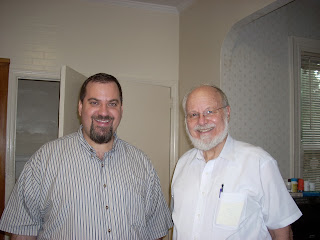Do we need permission to subscribe to the Documentary Hypothesis?
A friend mentioned on Facebook that according to Yehuda Mirsky in his work on Rav Kook, "He [Rav Kook] suggests that one may accept the findings of Biblical criticism and still keep faith with tradition."
It got me thinking. For believers who have confronted truths about biblical authorship, does this really matter? We dig for hints of "permission" to believe what we know to be true, i.e. the Torah is a humanly composed composite document.
But what if there were no such hints? What if, instead of being 99% opposed to Biblical Criticism, traditional Judaism (which Orthodoxy claims to be the only conduit of) it was 100% opposed, with no cracks or openings for hope from relatively open-minded rishonim or achronim? What if you could't appeal to the phlisophical direction of Ibn Ezra or to vague statements by Rav Kook? What if Zev Farber wasn't out there making a splash and trying to carve out a niche?
Would any of that matter? Once you've seen the man behind the curtain, you can't just go back and believe that the Torah was given by Hashem at Sinai, word for word. You can't suddenly reject what you know of history and archaeology and re-decide that the Torah is about real history.
Once you know the truth, you have to either make your own accommodation with tradition or lose faith entirely. So ultimately, while it's certainly nice to get validation from purported interpretations of Rav Kook, it doesn't really make much of a difference in the end.
It got me thinking. For believers who have confronted truths about biblical authorship, does this really matter? We dig for hints of "permission" to believe what we know to be true, i.e. the Torah is a humanly composed composite document.
But what if there were no such hints? What if, instead of being 99% opposed to Biblical Criticism, traditional Judaism (which Orthodoxy claims to be the only conduit of) it was 100% opposed, with no cracks or openings for hope from relatively open-minded rishonim or achronim? What if you could't appeal to the phlisophical direction of Ibn Ezra or to vague statements by Rav Kook? What if Zev Farber wasn't out there making a splash and trying to carve out a niche?
Would any of that matter? Once you've seen the man behind the curtain, you can't just go back and believe that the Torah was given by Hashem at Sinai, word for word. You can't suddenly reject what you know of history and archaeology and re-decide that the Torah is about real history.
Once you know the truth, you have to either make your own accommodation with tradition or lose faith entirely. So ultimately, while it's certainly nice to get validation from purported interpretations of Rav Kook, it doesn't really make much of a difference in the end.

Doesn't accepting that the Torah is a human edited composite document undermine the very structure of the mesora and the halacha based on it. Chazal routinely use minute details of language in the Torah as a source of the most basic halachot. That's where rabbinic support and explanation become necessary.
ReplyDeleteThere's a course offered at my college about biblical criticism, and a frum kid I know who took it last semester felt that it strengthened his emunah in the fact that Hashem wrote the Torah.
ReplyDeletebeen there, blogged that. It's a rather lighthearted post, but does reflect my opinion. To me, what's important about Jewish tradition is that it's ours, no matter who--or Who--wrote it.
ReplyDelete